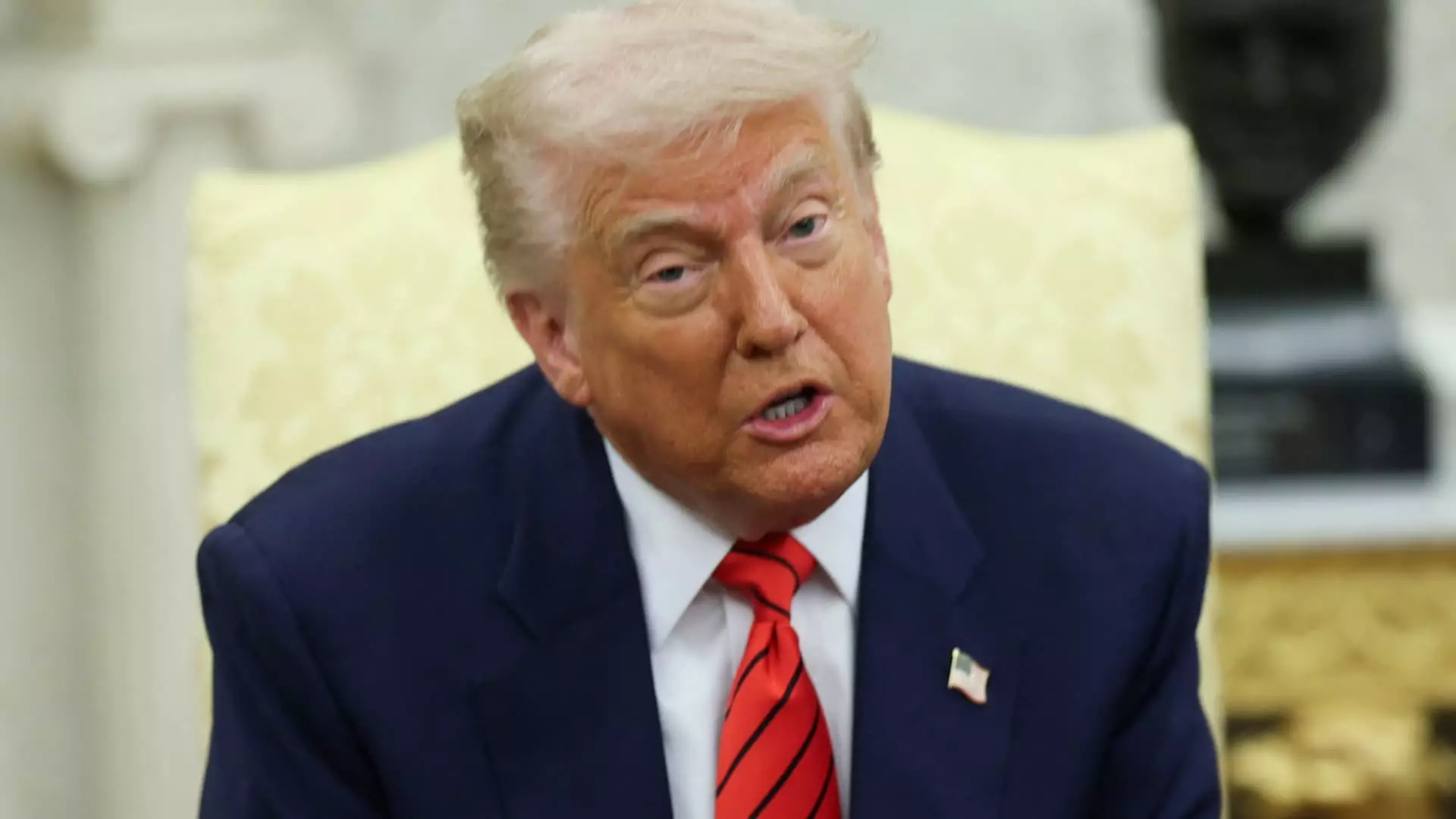In a striking deviation from traditional diplomatic protocol, President Donald Trump’s recent comments on trade agreements have stirred debate and confusion among political analysts and business circles alike. Underlying this shift is a stark message: the United States, in Trump’s view, is under no obligation to formalize trade deals. This outlook is not merely a reflection of presidential whims but rather a calculated strategy that challenges long-held beliefs about international trade dynamics.
Trump’s rhetoric, expressed during a meeting with Canadian Prime Minister Mark Carney, revealed profound discontent with the existing narrative surrounding trade negotiations. Prior to this event, the administration had been adamant about the necessity of brokering deals, yet Trump’s dismissal of this concept raises critical questions about the administration’s broader economic strategy. “We don’t have to sign deals; they have to sign deals with us,” he stated, redefining the balance of power in global trading relationships. This audacious claim suggests an underlying philosophy—that the U.S., with its vast market, holds the leverage, compelling other nations to seek favorable terms.
Market Dynamics: A Shift in Leverage
The essence of Trump’s assertion lies in a fundamental shift in the perception of market dynamics. Traditionally, trade agreements are viewed as cooperative endeavors aimed at mutual benefit. However, Trump frames this landscape differently, leaning towards a perspective that positions the U.S. as a “super luxury store.” This metaphor not only exudes confidence but also implies exclusivity; countries need access to the American market far more than the U.S. needs to trade with them.
Such a stance, while provocative, does require critical examination. By minimizing the need for formal agreements, the administration risks alienating international partners who may seek structured negotiations. The intricacies of global economics imply that collaborative frameworks are essential to navigate complex supply chains and trade norms. Trump’s dismissal may indicate a calculated gamble to assert dominance, but it also reflects an apparent disregard for long-standing strategies that have historically fostered international cooperation.
Political Repercussions: Signal or Strategy?
Trump’s trade rhetoric has implications that extend beyond mere business transactions. It enters the realm of political messaging, framing the administration’s posture as one of strength. Yet amidst these bold proclamations, the fluctuating stock market post-comments serves as a barometer of investor sentiment. Following the president’s remarks, U.S. markets dipped, indicating unease among business leaders who crave clarity and predictability in international dealings. As Trump grapples with this trade landscape, there arises a palpable tension between his administration’s ambitions and the practical realities faced by American businesses, particularly those deeply embedded in global supply chains.
Trump has attempted to deflect any responsibility for miscommunication among his advisers, attributing overpromising on potential trade deals to a misunderstanding. This public blame game not only undermines the authority of his economic team but also casts doubt on the administration’s coherence in addressing the complexities of trade negotiations. When high-ranking officials, like Treasury Secretary Scott Bessent, relay optimism about imminent deals, contrasting statements from Trump may ultimately confuse their foreign counterparts and investors alike.
Negotiation Strategies: Navigating Uncertainty
As Trump contemplates possible agreements with countries like India, South Korea, and Japan, he remains on a tightrope—balancing between bold proclamations and the lack of tangible outcomes. The term “potential deals” evokes a sense of anticipation, yet without concrete announcements, it hovers into the realm of mere rhetoric. His assertion that “one day we’ll come and we’ll give you 100 deals” exemplifies a blend of ambition and uncertainty, revealing the administration’s strategy of leveraging expectations while sidestepping immediate accountability.
In the grand tapestry of global trade relations, this unpredictable approach raises concern. As countries await definitive steps towards normalization, the potential for miscalculations raises the stakes for both the U.S. and its trading partners. An environment marked by ambiguity can deter investments and disrupt established economic relationships that are lucrative for both sides.
Understanding Trump’s divergence from conventional trade strategies is key to navigating our current economic landscape. Whether this dismissal of formal agreements strengthens American autonomy in global trade or creates unwarranted chaos remains to be seen, but it undoubtedly marks a significant turn in how the U.S. engages with the world.

